|
|
|
|
Nigerians disagree on many things. But they’re almost unanimous in the view that the country’s police force is no good at doing its job. It’s not hard to fathom why. The force’s central command structure makes it unwieldy and unable to police a country made up of 36 states and nearly 200 million people. Its officers are generally viewed as being in love with corruption and they are better known for human rights abuses and torture than apprehending criminals. They also seem ill-equipped to deal with modern day security challenges like terrorism, banditry and kidnapping.
How will the country’s recently appointed police chief manage this cauldron of fire? Lanre Ikuteyijo has some ideas for him. They include fully embracing the idea of community policing, adopting modern policing techniques and improving the welfare of police.
For years there have been tensions between Ethiopia, Sudan and Egypt over the Grand Ethiopian Renaissance Dam. The dam’s reservoir will be large enough to store the full annual Blue Nile flow, which would allow year-round hydroelectricity production for Ethiopia. But it will interrupt the natural flow of the Blue Nile. Egypt and Sudan are concerned that this will reduce the flow of water downstream. Sebastian Sterl proposes a solution
that could end the deadlock: Ethiopia, Sudan, Egypt and their neighbours could deploy large-scale solar and wind farms and establish a regionally integrated power grid.
|
Wale Fatade
Commissioning Editor: Nigeria
|

|
|
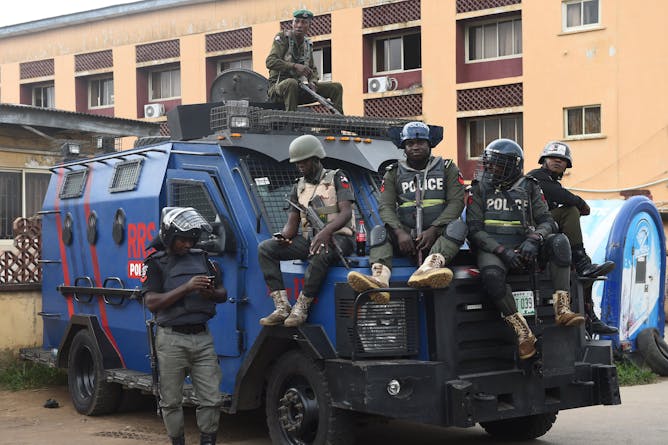
Community policing must be high on the agenda of Nigeria’s new police chief
Pius Utomi Ekpei/AFP via Getty Images
Lanre Ikuteyijo, Obafemi Awolowo University
Apart from tackling terrorism, banditry and kidnappings, Nigeria's new Inspector General of Police must embrace community policing.
|
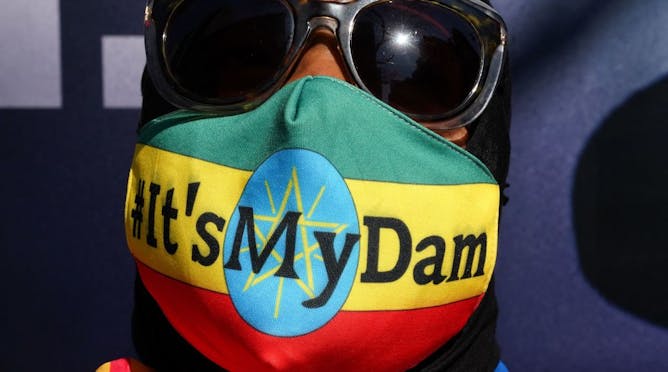
Ethiopian protestors march down 42nd Street in New York during a “It’s my Dam” protest on March 11, 2021.
Photo by TIMOTHY A. CLARY/AFP via Getty Images
Sebastian Sterl, Vrije Universiteit Brussel
Ethiopia, Sudan, Egypt and their neighbours could deploy large-scale solar and wind farms, connected by a regionally integrated power grid.
|
Politics
|
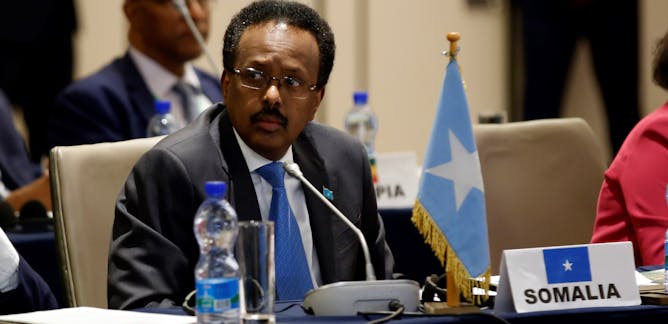
Mohammed Ibrahim Shire, University of Portsmouth
Although polarising, parliament's move to extend Farmaajo's term has presented a practical road-map to hold direct elections for the first time since 1969.
| |
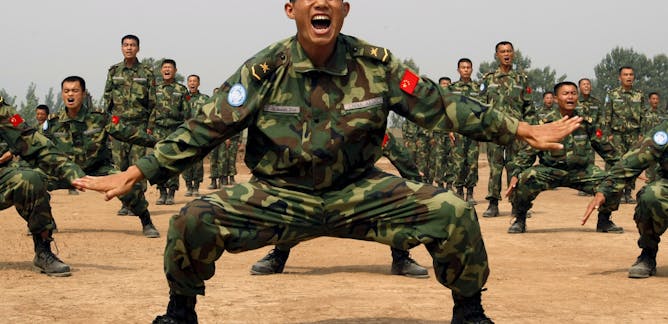
Dries Velthuizen, University of South Africa
The "Chinese Model" for development could be a blueprint for the modernisation and transformation of African economies.
|
|
|
Business + Economy
|
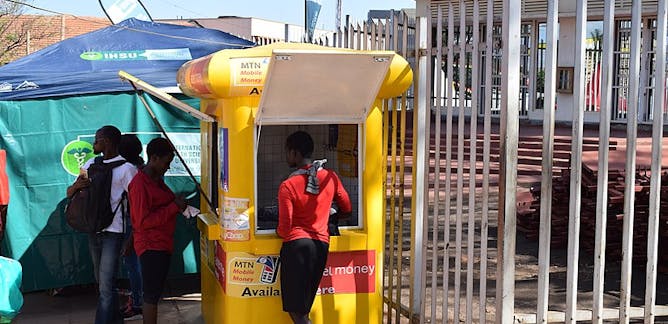
PK Senyo, University of Southampton
An attempt to prevent fraud in Ghana's burgeoning mobile money sector could be a setback for access to financial services.
| |
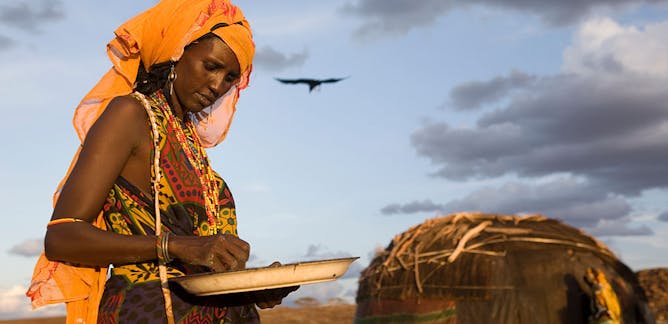
Jody Delichte, University of Cape Town
Building business skills to improve livelihoods is increasingly recognised as bringing value to the fight against poverty. But it can also set up identity conflict and community-level tension.
|
|
|
From our international editions
|

Rob Reddick, The Conversation
Both the AstraZeneca and Johnson & Johnson vaccines are now being investigated for links to rare blood disorders.
| |

Cristina Pozo-Gonzalo, Deakin University
Rare-earth metals are currently mined or recovered via e-waste recycling — methods with drawbacks including high cost, environmental damage, and risks to human safety. This is where we come in.
|
|
|
En Français
|
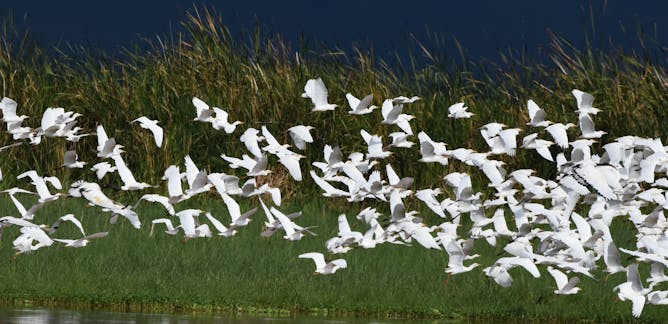
Luc Janssens de Bisthoven, Royal Belgian Institute of Natural Sciences
Les réserves de biosphère sont les laboratoires vivants dans lesquels les hommes et la nature apprennent à vivre et à prospérer ensemble.
| |
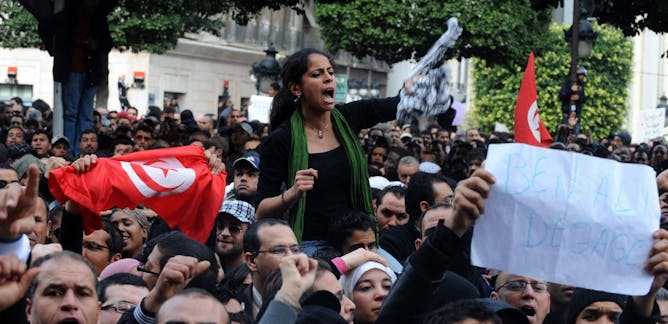
Addis Birhanu, EM Lyon
Les changements soudains de gouvernement ont davantage pesé sur la performance financière des filiales de groupes familiaux que sur celles des entreprises autonomes.
|
|
|
| |
Featured events
|

|
27 St Andrews Road, Parktown, Johanesburg, Gauteng, 2193, South Africa — University of the Witwatersrand
|

|
Robert Sobukwe Road, University of the Western Cape, Bellville, Cape Town, Western Cape, 7535, South Africa — University of the Western Cape
|
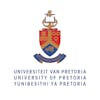
|
Online, Pretoria, Gauteng, 0083, South Africa — University of Pretoria
|

|
Robert Sobukwe Road, University of the Western Cape, Bellville, Cape Town, Western Cape, 7535, South Africa — University of the Western Cape
|
|
|
|
| |
| |
| |
Would you like to republish any of these articles?
|
|
It’s free to republish, here are the guidelines.
Contact us on africa-republish@theconversation.com in case you need assistance.
|
| |
| |
| |
| |
|
|
|
|
|
|
|